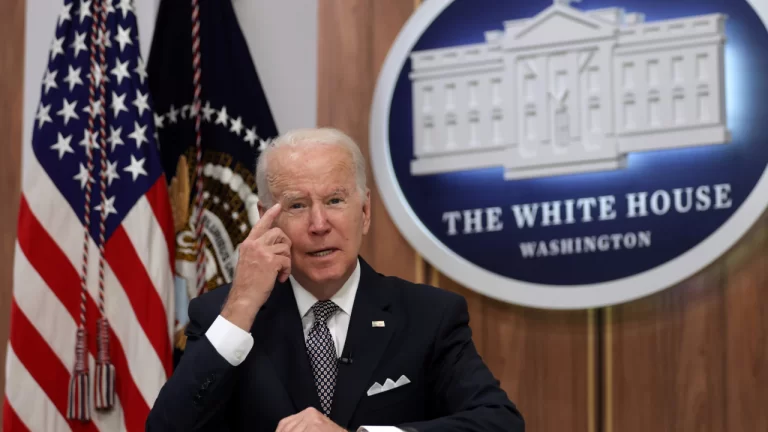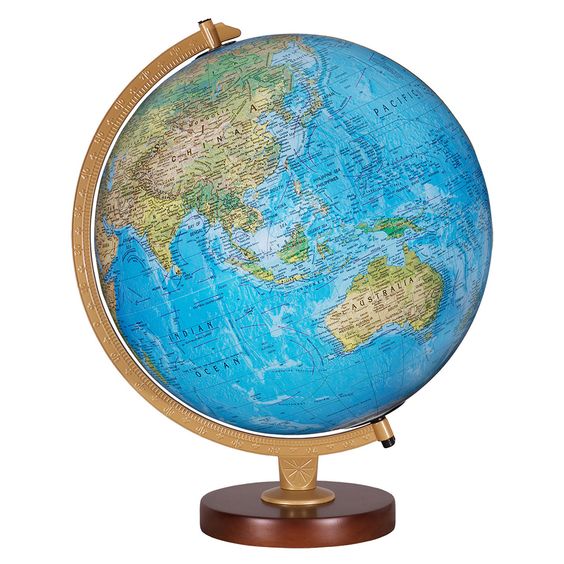
One of the rock solid, unwavering givens in the world’s diplomatic playbook has cracked—the 76-year-old bipartisan US support for Israel.
By Tom Arms
One of the rock solid, unwavering givens in the world’s diplomatic playbook has cracked—the 76-year-old bipartisan US support for Israel.
There will be repercussions for Israel, the United States, the Palestinians, Europe and the Middle East.
Since before 1948, support or opposition to Israel has been one of the world’s key political fault lines. Which side a government chose played a major role in determining their position on a host of other issues.
At the fulcrum of this fault line was support for successive Israeli governments from Republican and Democratic American administrations. More than $4 billion a year in military aid flows from Washington to Israel, and that is only the money that is known. Whenever Israel faced UN condemnation it could count on the American veto. And if it was attacked, America, supplied the latest weaponry. Israel was America’s only certain and democratic ally in the Middle East and Israel could not exist without America.
The public appearance of the crack was the Senate speech last week by Majority Leader Chuck Schumer. He called on Israelis to vote Prime Minister Benjamin Netanyahu out of office. And he implicitly warned that if the voters did not remove “Bibi” then American aid and political support was in jeopardy.
President Biden gave the Schumer speech the presidential seal of approval. It was, he said, “a good speech.” Republicans disagreed and the battle lines were drawn. Senate Minority leader accused Schumer of interfering in the democratic processes of a close ally. Donald Trump said that Jews who voted Democrat “hated Israel” and “hated their own religion.” Speaker of the House Mike Johnson said he would be inviting Netanyahu to address a joint session of Congress. This event is unlikely to happen because it requires the support of Chuck Schumer.
In a post-speech interview with the New York Times, Senator Schumer, said his disillusionment did not start with the war on Gaza. The impetus for him was the bromance between Trump and Bibi and the Trump-organized Abraham Accords which established diplomatic relations between Israel and several Arab countries without any consideration for the Palestinians. Netanyahu, said Schumer, made the crack inevitable when he decided that his interests lay with Trump and the Republican Party at the expense of the Democrats.
The Biden Administration had hoped that Republicans and Democrats and other governments could rally around an American resolution which it put to the UN Security Council on Friday morning. It was much stronger than a previous un-submitted draft and called for “an immediate ceasefire” and the “release of all hostages.” The proposal secured the support of the EU which, up to this week, had been divided over the issue. But it was vetoed by Russia and China who see the Gaza War as a useful diplomatic tool for driving a wedge between America and the Global South.
Canada, however, has taken the dramatic step of stopping weapons sales to Israel because of the rising death toll in Gaza. Palestinian supporters in the Canadian House of Commons introduced the necessary legislation through a long-standing Canadian law that prohibits the sale of arms to countries that “violate human rights” or “harm women and children.” Canada’s Palestinian Solidarity Movement was pushing for the ban. However, it failed to persuade the government to issue more visas to Gazans fleeing the violence; impose sanctions against Israeli government leaders; recognize a Palestinian state and suspend all military and technology trade with Israel.
While the Biden Administration’s Security Council resolution was being vetoed. Secretary of State Anthony Blinken arrived in Israel for talks with Netanyahu. As his plane landed, Finance Minister Bezalel Smotrich announced that Israel was declaring another 1,977 acres of the West Bank Israeli “state land”—a clear signal that Israel was determined to take a strong and independent anti-Palestinian line regardless of American opposition.
In Qatar, ceasefire talks are deadlocked. Hamas refuses to release any hostages unless Netanyahu agrees an end to the war. Netanyahu has agreed to a six-week ceasefire and the increased flow of humanitarian aid in return for 40 hostages out an estimated 130 remaining. But, says Netanyahu, the war resumes after six weeks.
President Biden said an attack on Rafah is a “red line” without saying what happens if the line crossed. Netanyahu says he will attack regardless of Biden’s warning, but he will send a delegation to Washington to explain how the attack will be conducted “humanely.”
 World Review
World Review
The Ukraine aid bill is starting to inch its way through the American House of Representatives. Up until this week the $60 billion much-needed package has been blocked by Speaker Mike Johnson’s refusal to allow Congress a vote on the issue.
He also tied the aid bill (which also includes money for Israel and Taiwan) to tougher laws on immigration.
This has clearly been done in collusion with Donald Trump who opposes aid to Ukraine and wants to delay any agreement on immigration so that he can make it his key election issue.
Senate Republicans have already passed the Ukraine aid bill and have been piling the pressure on Speaker Johnson to allow a vote. This week he agreed. But with several huge caveats. For a start, aid to Israel, Ukraine and Taiwan will be voted on separately. Next, he wants to change the wording of the legislation from “aid” to “loan” or possibly “lend-lease.”
Johnson also wants to explore the possibility of applying the profits from $300 billion of frozen Russian assets to the aid that Ukraine needs. This would involve something called the REPO Act or, The Rebuilding Economic Prosperity and Opportunity for Ukraine Act which authorizes the President to seize Russian assets.
The problem with the REPO Act is that it specifies that the seized assets should be used for reconstruction. Ukraine needs money to fight. Reconstruction comes after the fighting.
There are other problems with Johnson’s apparent change of heart. To start with, separating out the different clauses and turning aid into a loan will seriously delay the bill. Next, because it is substantially changed the bill will have to go back to the Senate and, finally, both houses of Congress are about to start their 22-day Easter recess.
Mike Johnson’s change of heart may actually be a change of delaying tactics.
Meanwhile the Europeans are trying to fill the gap and smooth over their differences over Ukraine. The last few weeks have seen French President Emmanuel Macron and German Chancellor Olof Scholz sniping at each other over who is more generous to the brave Ukrainians.
Macron talked about the possibility of sending troops to Ukraine and urged Scholz to provide Volodomyr Zelensky with long-range Taurus missiles. The more cautious Scholz delivered a firm “nein” to sending troops and ruled out the despatch of Taurus because German soldiers would be needed to operate the system. Scholz also pointed out that Germany was providing a lot more money than France and that if the French leader wanted to help Ukraine he should put his money where his mouth is.
Enter Donald Tusk, former European Commission president and current prime minister of Poland. He called a meeting of the leaders of the EU’s two biggest countries to smooth out difficulties that were threatening to derail EU support for Ukraine.
The biggest and most immediate problem facing Ukraine is the lack of artillery shells. Russia is being well-supplied by North Korea and its own factories. Ukraine relies on the West. American aid is held up by Speaker Mike Johnson. Europe is willing but unable to fill the shortfall because its post-Cold War defense industries have been neglected.
The EU, however, does have the money. But, as Mr Tusk said: “Ukraine needs ammo, not money.” So the Tusk-Macron-Scholz meeting came up with a possible solution: Buy the necessary weaponry on the global markets. They should have no problem finding arms merchants prepared to sell them shells or almost anything else.
EU heads of government are meeting this weekend to discuss how much to pledge from both national and EU coffers to what is being called a “capacity coalition” to arm Ukraine. As well as buying shells on the global market, the Europeans will be discussing using the profits from frozen Russian assets, ramping up defence production and improving military cooperation between EU members.
Meanwhile it is worth noting that there was no press conference following the Tusk-Scholz-Macron summit. Differences remain and could easily surface again.
Democracy works in Russia, according to re-elected President Vladimir Putin. Yes, it does. It works for Putin. He managed to gather 87.23 percent of the vote. Such a margin has not been achieved since the days of one-party communist rule.
Congratulations were definitely required. And they came in from all the usual suspects: China, Venezuela, Cuba, Saudi Arabia, North Korea, United Arab Emirates and Iran. Hungary’s Viktor Orban broke ranks with his EU colleagues to join the list of dictators and autocrats. India’s Narendra Modi, leader of the world’s alleged largest democracy, also cabled a “well done Vladimir.” He can be excused because of India’s foreign policy of piggy-in-the-middle playing Russia and China off against each other.
Virtually all of the rest of the world dismissed the elections as a pointless sham.
Sham is right. Pointless is wrong. The elections provided Putin with a platform to enunciate his policies and plans for the Ukraine War (oops, I mean “Special Military Operation). It also allows the Russian leader to claim electoral legitimacy—even if it is based on a false premise. This legitimacy in turn allows Putin to step up his war in Ukraine and against the West in general.
Putin will undoubtedly soon organize another round of conscriptions. He has to in order to replace the estimated 350-500,000 casualties that Russia has so far suffered in the Ukraine War. Russian overseas opponents should also be watching their backs as he will claim that the start of his fourth presidential term justifies a fresh round of assassinations.
Militarily, the focus will continue to be on Ukraine but Moldova and Georgia are worried. Putin could also stir up trouble between Serbia and Kosovo and Armenia and Azerbaijan. The Baltic states of Estonia, Latvia and Lithuania are already voicing their concern, but they have the NATO shield. So does new Alliance member Finland whose 830-mile border with Russia now has fresh troops on the Russian side.
Also expect an increase in disinformation and cyber wars, especially in the November presidential elections in the US and the European Parliament elections in June. Ukraine will be target number one for the Russian hackers. Last year they launched 2,554 cyber-attacks Ukrainian targets.
Hong Kong needs foreign investment. China needs Hong Kong, especially now that a combination of tariffs, de-risking policies and sanctions has led to a flight of foreign capital from Mainland China on top of faltering growth and the collapse of the property sector.
Which is why it is difficult to understand why Hong Kong’s Legislative Council has shot itself in the economic foot with a fresh round of anti-dissent regulations.
This Tuesday the one-party unicameral legislature passed Article 23 which lists new and tougher laws related to treason, espionage, theft of state secrets, sedition and foreign interference. New restrictions are placed on all foreign entities—government, non-government, media and businesses—and all Hong Kong residents who interact with them.
Foreign correspondents are already packing their bags. Hong Kong has long been a popular base for journalists covering China and elsewhere in the region. Now they are moving to Singapore, Taiwan or Japan.
The media helped to attract businessmen who needed to be close to their information sources. But more importantly, the businesses need to be free to speak to each other and government officials without fear of ending up in a Chinese court.
Xi jingping says he wants foreign businesses to invest in Hong Kong and that Article 23 is designed to create “a secure and stable environment.” Hong Kong officials add that to attract foreign businesses, the legislative council has reduced property taxes and hosted an increasing number of well-attended trade fairs. True, but most of the participants are from Mainland China.
___________________
 Tom Arms is foreign editor of Liberal Democratic Voice and the author of “America Made in Britain” and “The Encyclopaedia of the Cold War.” He also co-hosts the world affairs podcast TransAtlantic Riff
Tom Arms is foreign editor of Liberal Democratic Voice and the author of “America Made in Britain” and “The Encyclopaedia of the Cold War.” He also co-hosts the world affairs podcast TransAtlantic Riff
https://open.spotify.com/show/3ntjretAKNLZNFpA5ZEGDG?utm_source=substack&utm_medium=email